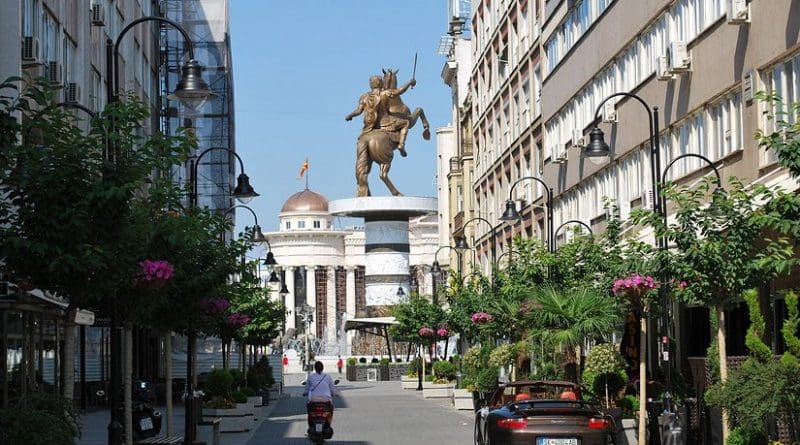Russian Businessman Denies Funding Macedonia Anti-NATO Protests
By Sinisa Jakov Marusic
Greece-based Russian businessman Ivan Savvidi denied allegations that he was involved in funding anti-NATO protests in Macedonia ahead of the country’s all-important name change referendum in autumn.
Savvidi’s group of companies issued a statement on Tuesday strongly denying claims that he gave hundreds of thousands of euros to Macedonian opponents of the country’s proposed name change, including opposition politicians and football hooligans.
“Businessman Ivan Savvidi has no ties or involvement in the activities mentioned in the untrue and utterly slanderous text. In the coming hours we will file a suit against the media [outlet] and the authors of these unfounded claims,” Macedonia’s state news agency MIA reported Savvidi’s group as saying.
The Organized Crime and Corruption Reporting Project, OCCRP on Monday claimed that its reporters in Macedonia have seen Macedonian interior ministry documents according to which Savvidi allegedly paid some 300,000 euros to Macedonian opponents of the name deal with Greece that has unblocked the country’s EU and NATO accession bids.
According to OCCRP, these payments were made to “over a dozen Macedonian politicians from various parties”, whose names were not revealed, as well as, members of recently-founded radical nationalist organisations and soccer hooligans from the Vardar club who participated in riots in Skopje in June.
Savvidi is best-known as the owner of Greece’s PAOK football club and of various media outlets.
The OCCRP published its story after earlier on Monday, Macedonian Prime Minister Zoran Zaev was the first to accuse an unnamed Greek businessmen sympathetic to Russia’s interests of fomenting unrest in his country over its proposed name change, which — if verified at the forthcoming referendum — will finally enable Skopje to join NATO.
In a reaction issued on late Monday, the Russian Embassy in Skopje complained that these allegations were harmful and designed to spread “Russophobia”. Russia strongly opposes any further expansion of the Western military alliance.
Macedonia last week got its long-awaited invitation to start membership talks for NATO, at the alliance’s summit in Brussels. The European Commission on Tuesday also launches the screening process for the country, in hope of starting accession talks in summer next year.
This was made possible after Macedonia and Greece signed their historic deal on June 17 after a series of UN-sponsored talks, editing their 27-year dispute over Macedonia’s name.
Under the agreement, Macedonia will change its name to the Republic of North Macedonia in order to make it distinct from the northern Greek province, also called Macedonia.
In return, Greece lifted its long-standing blockade of its neighbour’s Euro-Atlantic accession bids.
But the key test for the government in Skopje is the referendum on the ‘name’ deal, which is due to take place this autumn.
If the plebiscite succeeds, the agreement will be put into effect, more or less guaranteeing the success of the country’s accession to NATO and the start of EU accession talks.
The main opposition parties in Macedonia and in Greece oppose this agreement, however, calling it a betrayal of their respective national interests.

